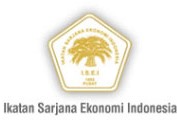Impact of International Sports Event on Local Businesses: Insight from the Stallholders and Official Partners of the 2018 Asian Games
(1) Universitas Indonesia
(2) Ministry of National Development Planning (Bappenas)
(3) Graduate School of Strategic and Global Studies, Universitas Indonesia
(4) Universitas Indonesia
(5) Universitas Indonesia
Abstract
International mega sports events commanding massive public spending are expected to stimulate the economic development of the host country. This study aims to examine the impact of the 2018 Asian Games Jakarta-Palembang on local businesses, captured through the perspectives of micro, small and medium-sized enterprises (MSMEs) and official partners of the event. Primary data were collected through face-to-face survey administered using questionnaire during and after the event, yielding usable responses from 284 stallholders in Jakarta and Palembang venues and 19 official partners. The results show that the respondents hired additional workers during the event and they also generated additional sales, profit of which was partly used to scale up their businesses. However, future event can generate greater impact to local businesses with more effective socialization, simpler registration, and better stalls arrangements including more strategic location, better electricity and water supplies, and easier loading access to the venues.
Keywords
Full Text:
PDFReferences
Baade, R. , & Matheson, V. (2004). The Quest For The Cup: Assessing The Economic Impact Of The World Cup. Regional Studies, 38(4), 343–354. https://doi.org/10.1080/03434002000213888
Beckman, E., & Traynor, M. (2018). Utilizing Trade Market Analysis To Identify The Economic Impact Of A Multiday Special Event In Miami Beach, Florida. Tourism Economics, 25(2), 253–273. https://doi.org/10.1177/1354816618800194
Borovcanin, D., Cuk, I., Lesjak, M., & Juvan, E. (2020). The Importance Of Sport Event On Hotel Performance For Restarting Tourism After Covid-19. Societies, 10(4), 90. https://doi.org/10.3390/soc10040090
Burgan, B., & Mules, T. (1992). Economic Impact Of Sporting Events. Annals Of Tourism Research, 19(4), 700–710. https://doi.org/10.1016/0160-7383(92)90062-T
Carvalho, M., Sousa, M., Paipe, G., Bavaresco, G., & Felipe, J. (2018). Economic Impact Of The 11th Douro Valley Half Marathon. Physical Culture And Sport. Studies And Research, 78(1), 41-49. https://doi.org/10.2478/pcssr-2018-0012
Case, R., Dey, T., Hobbs, S., Hoolachan, J., & Wilcox, A. (2010). An Examination Of Sporting Event Direct-Spending Patterns At Three Competitive Levels. Journal Of Convention & Event Tourism, 11(2), 119–137. https://doi.org/10.1080/15470148.2010.485178
Case, R., Dey, T., Lu, J., Phang, J., & Schwanz, A. (2013). Participant Spending At Sporting Events: An Examination Of Survey Methodologies. Journal Of Convention & Event Tourism, 14(1), 21–41. https://doi.org/10.1080/15470148.2012.755607
Chalip, L., & Leyns, A. (2002). Local Business Leveraging Of A Sport Event: Managing An Event For Economic Benefit. Journal Of Sport Management, 16(2), 132-158. https://doi.org/10.1123/jsm.16.2.132
Daniels, M., Backman, K., & Backman, S. (2004). Supplementing Event Economic Impact Results With Perspectives From Host Community Business And Opinion Leaders. Event Management, 8(3), 117-125.
Delpy, L. (1998). An Overview Of Sport Tourism: Building Towards A Dimensional Framework. Journal Of Vacation Marketing, 4(1), 23–38. https://doi.org/10.1177/135676679800400103
Fourie, J., & Santana-Gallego, M. (2011). The Impact Of Mega-Sport Events On Tourist Arrivals. Tourism Management, 32(6), 1364–1370. https://doi.org/10.1016/j.tourman.2011.01.011
Fredline, L., Deery, M., & Jago, L. (2013). A Longitudinal Study Of The Impacts Of An Annual Event On Local Residents. Tourism Planning & Development, 10(4), 416-432.
https://doi.org/10.1080/21568316.2013.779314
Gelsenkirchen, E. (2007). Sport Tourism: Introduction And Overview Jürgen Schwark. European Journal For Sport And Society, 4(2), 117–132. https://doi.org/10.1080/16138171.2007.11687799
Gibson, H. (2017). Sport Tourism And Theory And Other Developments: Some Reflections. Journal Of Sport & Tourism, 21(2), 153–158. https://doi.org/10.1080/14775085.2017.1319514
Green, B., Costa, C., & Fitzgerald, M. (2003). Marketing The Host City: Analyzing Exposure Generated By A Sport Event. International Journal Of Sports Marketing And Sponsorship, 4(4), 48–66. https://doi.org/10.1108/IJSMS-04-04-2003-B005
Guaita Martinez, J., Martin, J., Rey, O., & Soriano, R. (2022). Entrepreneurs’ Perceptions Of Official Sporting Events’ Capacity To Promote Their Business In The Long Term. Sport In Society, 25(8), 1584-1602. https://doi.org/10.1080/17430437.2021.1932818
Haddad, E., & Haddad, P. (2010). Major Sport Events And Regional Development: The Case Of The Rio De Janeiro 2016 Olympic Games. Regional Science Policy & Practice, 2(1), 79- 95.
Hayduk, T. (2020). Mega Sport Events As Drivers Of Entrepreneurship: Bridging The Gap Between Economics And Psychology. International Journal Of Entrepreneurship And Small Business. https://doi.org/10.1504/IJESB.2020.10029494
Heere, B., Wear, H., Jones, A., Breitbarth, T., Xing, X., Salcines, P., Yoshida, M., & Derom, I. (2019). Inducing Destination Images Among International Audiences: The Differing Effects Of Promoting Sport Events On The Destination Image Of A City Around The World. Journal Of Sport Management, 33(6), 506–517. https://doi.org/10.1123/jsm.2018-0101
Hemmonsbey, J., & Tichaawa, T. (2020). Brand Messages That Influence The Sport Tourism Experience: The Case Of South Africa. Journal Of Sport & Tourism, 24(3), 177–194. https://doi.org/10.1080/14775085.2020.1822200
Higham, J. (2021). Sport Tourism: A Perspective Article. Tourism Review, 76(1), 64–68. https://doi.org/10.1108/TR-10-2019-0424
Ito, E., & Hinch, T. (2019). Empirical Research On Sport Tourism Behaviour And Experience. Impact, 2019(1), 72–74. https://doi.org/10.21820/23987073.2019.1.72
Jeong, Y., & Kim, S. (2020). A Study Of Event Quality, Destination Image, Perceived Value, Tourist Satisfaction, And Destination Loyalty Among Sport Tourists. Asia Pacific Journal Of Marketing And Logistics, 32(4), 940–960. https://doi.org/10.1108/APJML-02-2019-0101
Jeong, Y., Yu, A., & Kim, S. K. (2019). The Antecedents Of Tourists’ Behavioral Intentions At Sporting Events: The Case Of South Korea. Sustainability, 12(1), 333. https://doi.org/10.3390/su12010333
Kim, M., Kim, S., Park, J., Carroll, M., Yu, J., Kil, M., & Na, K. (2017). Measuring The Economic Impacts Of Major Sports Events: The Case Of Formula 1 Grand Prix (F1). Asia Pacific Journal Of Tourism Research, 22(2), 64–73. https://doi.org/10.1080/10941665.2016.1176061
Lee, C., & Taylor, T. (2005). Critical Reflections On The Economic Impact Assessment Of A Mega-Event: The Case Of 2002 FIFA World Cup. Tourism Management, 26(4), 595-603. https://doi.org/10.1016/j.tourman.2004.03.002
Matic, R., Karagiorgos, T., Maksimovic, N., Alexandris, K., Bujkovic, R., & Drid, P. (2020). Testing The Influence Of Destination Image And Event Quality On Athletes’ Intentions To Re-Visit The City: A Case Study Of The 2017 World Youth And Juniors’ Sambo Championships In Novi Sad, Serbia. Managing Sport And Leisure, 25(5), 390–401. https://doi.org/10.1080/23750472.2020.1724187
Orbis. (2018). Sports Tourism Market Estimated To Be Worth US$800 Billion Globally According To New Research Report. https://www.whatech.com/market-research/industrial/ archive/436642-sports-tourism-market-estimated-to-be-worth-us-800-billion-globallyaccording-to-new-research-report
Preuss, H. (2019). Event Legacy Framework And Measurement. International Journal Of Sport Policy And Politics, 11(1), 103–118. https://doi.org/10.1080/19406940.2018.1490336
Revindo, M., Siregar, C., Widyasanti, A., Anindita, D., Hastuti, N., Hambali, S., & Bintara, H. (2019). Spending Of Sports Event Participants And Tourists: Evidence From The 2018 Asian Games. JAKARTA: LPEM-FEB UI Working Paper 037. https://www.lpem.org/repec/lpe/papers/WP201937.pdf
Revindo, M., Widyasanti, A., Siregar, C., & Hambali, S. (2021). Factors Explaining The Expenditure Of Sports Event Participants And Spectators: Evidence From The 2018 Asian Games. Journal Of Sport & Tourism, 25(2), 105-127. https://doi.org/10.1080/14775085.2021.1883460
Revindo, M., Widyasanti, A., Siregar, C., Anindita, D., Hastuti, N., & Hambali, S. (2019). Long-Term Effect Of Mega Sports Event On Host Country’s Tourism: Evidence From The Jakarta-Palembang 2018 Asian Games. LPEM-FEB UI Working Paper 040. https://www.lpem.org/repec/lpe/papers/WP201940.pdf
Ritchie, B., & Adair, D. (2004). Sport Tourism: Interrelationships, Impacts And Issues (Vol. 14). Clevedon: Channel View.
Solberg, H., & Preuss, H. (2007). Major Sport Events And Long-Term Tourism Impacts. Journal Of Sport Management, 21(2), 213–234. https://doi.org/10.1123/jsm.21.2.213
Standeven, J & De Knop, P. (1999). Sport Tourism. Champaign: Human Kinetics.
Storm, R., Jakobsen, T., & Nielsen, C. (2020). The Impact Of Formula 1 On Regional Economies In Europe. Regional Studies, 54(6), 827-837. https://doi.org/10.1080/00343404.2019.1648787
Technavio. (2020). Sports Tourism Market 2019–2023. https://www.whatech. com/market-research/industrial/archive/436642-sports-tourism-market-estimated-to-be-worthus-800-billion-globally-according-to-new-research-report
Tohmo, T. (2018). The Economic Impact Of Tourism In Central Finland: A Regional
Input–Output Study. Tourism Review, 73(4), 521–547. https://doi.org/10.1108/TR-04-2017-0080
UK Sport & EY (2021). The Impact Of Major Sport Events: Study Of Soft Power, Trade And Investment Impacts. https://www.uksport.gov.uk/-/media/files/events/211130-mse-soft-power-ti.ashx?la=en&hash=13C1F12678069EE8DFB5FE43071B5DBE
Rheenen, D., Cernaianu, S., & Sobry, C. (2017). Defining Sport Tourism: A Content Analysis Of An Evolving Epistemology. Journal Of Sport & Tourism, 21(2), 75–93. https://doi.org/10.1080/14775085.2016.1229212
Vico, R., Uvinha, R., & Gustavo, N. (2019). Sports Mega-Events In The Perception Of The Local Community: The Case Of Itaquera Region In São Paulo At The 2014 FIFA World Cup Brazil. Soccer & Society, 20(6), 810-823. https://doi.org/10.1080/14660970.2017.1419471
Wasilczuk, J., & Zawadzki, K. (2013). The Attitude Of Polish Entrepreneurs To The Fact Of Staging The Mega Sport Event–The Case Of Pomeranian Smes Towards Euro 2012. Enterprise in Modern Economy - Theory and Practice [Przedsiębiorstwo We Współczesnej Gospodarce-Teoria I Praktyka], (1), 16-23.
Wood, J., & Meng, S. (2020). The Economic Impacts Of The 2018 Winter Olympics. Tourism Economics, 27(7), 1303–1322. https://doi.org/10.1177/1354816620921577
Xing, X., & Chalip, L. (2006). Effects Of Hosting A Sport Event On Destination Brand: A Test Of Co-Branding And Match-Up Models. Sport Management Review, 9(1), 49–78. https://doi.org/https://doi.org/10.1016/S1441-3523(06)70019-5
Ziakas, V. (2020). Leveraging Sport Events For Tourism Development: The Event Portfolio Perspective. Journal Of Global Sport Management, 1–30. https://doi.org/10.1080/24704067.2020.1731700
Ziakas, V., & Trendafilova, S. (2018). Event Planning And Leveraging For Sport Tourism Development: The Case Of A Rural Motorcycle Event. Case Studies In Sport Management, 7(1), 11–16. https://doi.org/10.1123/cssm.2017-0034
Refbacks
- There are currently no refbacks.

This work is licensed under a Creative Commons Attribution 4.0 International License.







